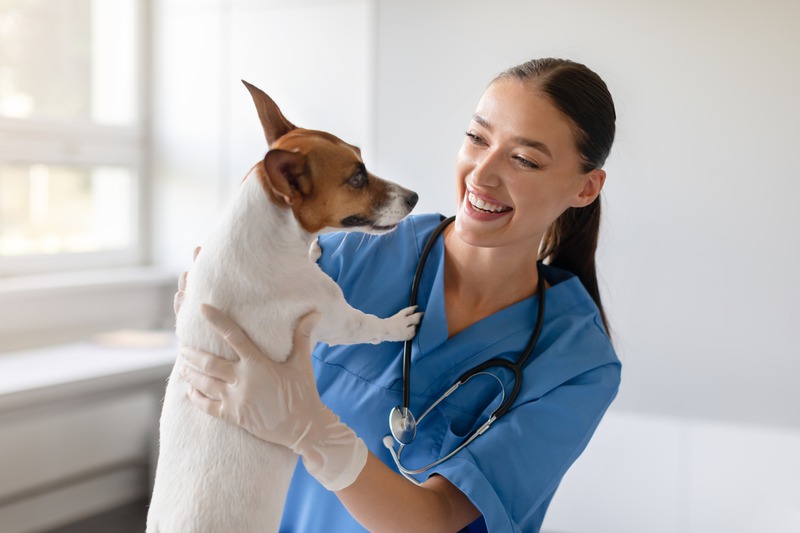When we think about pet care, cuddles and playful outings might spring to mind, but how often do we consider our furry friend’s dental health? Just like us, pets require regular oral care to ensure they lead healthy, comfortable lives. Sometimes, that care involves more than just a toothbrush and some pet-friendly toothpaste; it calls for dental lab work. But when exactly is that necessary, and why should we prioritize it? Let’s sink our teeth into the topic.
The Need for Dental Lab Work in Pets
Pet dentistry in Perry, GA, isn’t just about cleaning; it encompasses a range of procedures where dental lab work can come into play. Routine checks can reveal underlying issues that require specialized attention. Maybe your dog has a cracked tooth, or your cat has a case of gingivitis. These are instances where your vet might recommend a trip to the dental lab.
Spotting Dental Problems in Pets
Before diving into laboratory specifics, it’s crucial to recognize the signs that suggest your pet needs dental attention. Look out for:
-
Breath that could knock out an elephant – Bad breath is often the first sign of dental troubles.
-
A change in eating habits – If they’re avoiding their kibble, there might be something amiss in their mouth.
-
Visible plaque, tartar, or discoloration – Just like in humans, these are indicators of potential dental issues.
-
Pawing at their face or mouth – This could suggest something is causing pain in their mouth.
-
Swollen gums – Inflamed gums might be a sign of periodontal disease.
-
Bleeding from the mouth – That’s a red flag that should have you heading to your vet.
What Constitutes Dental Lab Work for Pets?
Dental lab work is more than just a cleaning session for your pet. It can include a variety of procedures, such as:
-
Digital X-rays to help vets see below the gumline.
-
Oral surgeries for tooth extractions or to repair oral defects.
-
Orthodontic services to address misalignments or bite issues.
-
Restorative work, like crowns and root canals, to save damaged teeth.
All these procedures require the expertise of a veterinary laboratory in Perry, GA, where specialized tools and technology are used to get your pet’s dental health back on track.
Common Dental Procedures for Pets
The following are a few typical dental lab procedures your furry pal might undergo:
-
Teeth Cleanings: Just like our cleanings but done under anesthesia for safety. It’s a step up from your daily brushing routine.
-
Extractions: Sometimes, a tooth is past the point of saving, and removal is the only option to prevent further health issues.
-
Periodontal Treatments: Deep cleaning and other procedures to manage gum disease.
-
Advanced Imaging: X-rays and CT scans can help diagnose issues that aren’t visible to the naked eye.
When Is It Time for Dental Lab Work?
Your vet will recommend dental lab work based on an evaluation of your pet’s oral health. It might be time if:
-
Your pet has one or more symptoms of dental problems.
-
A routine examination uncovers hidden issues that need further investigation.
-
There are significant changes in the way your pet eats or behaves.
-
Your pet has experienced trauma to the mouth.
Dental lab work goes beyond cosmetic fixes; it’s about preventing infection, chronic pain, and potential organ damage that can arise from untreated dental issues.
How Dental Lab Work Benefits Your Furry Companion
Investing in dental lab work can seem daunting, but the benefits are immense. These include:
-
Alleviating pain and discomfort.
-
Preventing tooth loss and the complications that come with it.
-
Deterring the progression of dental disease.
-
Improving overall health and potentially extending your pet’s lifespan.
Choosing the Right Dental Care for Your Pet
When it’s time to choose a provider for your pet’s dental care, look for reputable clinics that offer comprehensive services. The Perry veterinary clinic might be a good start if you’re in the area. They should offer:
-
A thorough oral examination.
-
The latest in dental technology and procedures.
-
Experienced staff who can handle your pet gently and safely.
-
Clear communication about the process, risks, and costs involved.
You’ll want a team that views pet dental health as a critical component of overall well-being.
Maintaining Dental Health at Home
Prevention is always better than cure. While not all dental issues can be avoided, you can do plenty to keep your pet’s mouth healthy:
-
Implement a daily brushing routine with pet-formulated toothpaste.
-
Choose dental chews and toys that help clean teeth while they play.
-
Keep up with regular vet visits for professional cleaning and exams.
-
Be vigilant for signs of dental disease and seek treatment promptly.
Home care, combined with professional dental lab work when necessary, forms a formidable defense against pet dental diseases.
Final Thoughts
We rarely think of our pets dealing with a toothache or needing a root canal, but securing good dental health is a crucial part of their care. Identifying when dental lab work is necessary ensures they don’t suffer in silence. Whether it’s for routine cleanings, X-rays, or surgery, dental lab work helps address issues that could otherwise have serious impacts on our pet’s quality of life.
Regular vet checks, staying alert to changes in their behavior, and maintaining good oral hygiene at home can go a long way. Should the need for laboratory work arise, make sure you’re equipped with the information to choose the best care possible. Remember, a healthy mouth aids in a happy, healthy pet.

